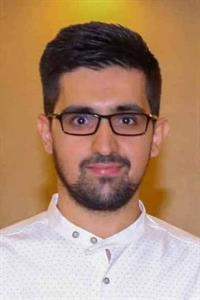The Kurdistan I know, not the one you do!
 5/11/2020 1:33:46 PM
5/11/2020 1:33:46 PM
4505 View
Hakeem Dawd Faraj
+
-
I arrived in the UK on my Iraqi passport, but I never tell anyone that I am an Iraqi. I always carefully say: “I am a Kurd,” which usually then requires a long clarification about who the Kurds are and where Kurdistan is located. But even for people who know some things about Kurdistan, it is often necessary to dispel misconceptions. I always proudly mention my ethnicity, but at the same time I have never and will never defend the government and leaders of the Kurdistan Region, who are responsible for many of the problems that we face every day. Saying that is not easy, but it is necessary.
What many outside observers see when they look at the Kurdistan Region is a quasi-sovereign, strong, and united entity with friendly relations with Western governments. In reality, however, it is weak, corrupt, and divided, with the Kurdistan Democratic Party (KDP) and the Patriotic Union of Kurdistan (PUK) exercising control over its valuable resources and political institutions to the exclusion of any who would challenge their primacy. So, what makes some western diplomats, journalists, and researchers fall in love with “miracle” Kurdistan, bending and stretching reality to fit the myth of a liberal and democratic bastion in a hostile region, while in reality it is one of the dangerous places on earth for journalists, human rights activists, and those who fight corruption and rule by wealthy elites? It is clear that KRG is a two-faced government: where it shows one Kurdistan to the outside, but subjects those within to a very different reality.
Over the past 100 years, Kurdistan was partitioned twice: first, as a result of the the Sykes-Picot that divided Kurdistan’s land into segments controlled by Turkey, Iraq, Iran, and Syria and, second, by Kurds themselves during a devastating civil war in Iraqi Kurdistan in the mid-1990s. In this latter instance, when Kurdish autonomy was established in 1992 following Saddam Hussein’s brutal attack on Kurds and in the aftermath of Gulf War, there was a golden opportunity for Kurdish leaders to be united and establish a democratic region. Instead of backing fair elections and enhancing human rights, Masoud Barzani’s KDP and Jalal Talabani’s PUK did exactly the opposite, collapsing the new institutions into civil war, during which thousands of people were killed an injured. One outcome of the war was the division of Kurdistan into two completely separated regions, with Duhok and Erbil controlled by the KDP and Sulaimani and Halabja controlled by the PUK. In both zones, corruption flourished, family rule was entrenched, and dissent was suppressed. Power and security became the preserve of the Barzanis, Talabanis, and their associates, as did the Kurdistan Region’s wealth.
That is why as a Kurdish journalist, I never believe in those diplomats and retired generals who argue Kurdistan is democratic and holds pro-Western values. The picture is extremely clear: you rarely see someone over the last 30 years who did not come by their high position as a result of the will of the people, but rather their connections with the Barzanis, Talabanis, or other elite power brokers like the PUK’s Kosrat Rasul. Nor is it just political positions that are allocated on this basis, but economic ones as well. The two parties also control every sector of the economy. Their giant companies monopolize nearly all major industries, including energy, communications, construction, manufacturing, and agriculture. Through breathtaking levels of corruption, policies that encouraged massive wealth inequality, and by killing journalists and protesters, the KDP and PUK become the strongest parties in the Region and now stand in a consistently strong position due to their wealth and power.
The answer to the question of how so many come to the conclusion that Kurdistan has democratic potential is its people. I know that the people of the Kurdistan Region want true democracy and that the majority respect diversity and want fair elections and the rule of law. I am not a traitor who wants to paint a negative picture of my own government just for the sake of being contrarian. I am proud of the Kurdistan Region’s brave defense against ISIS and of its people. However, we should see the full picture for what it is.
Hakeem Dawd Faraj is a journalist and writer in Manchester. He studies MA International Journalism at University of Salford. He has been working as journalist for the last 12 years.
The views and opinions expressed in this article are those of the author and or those quoted and do not necessarily reflect those of NRT.